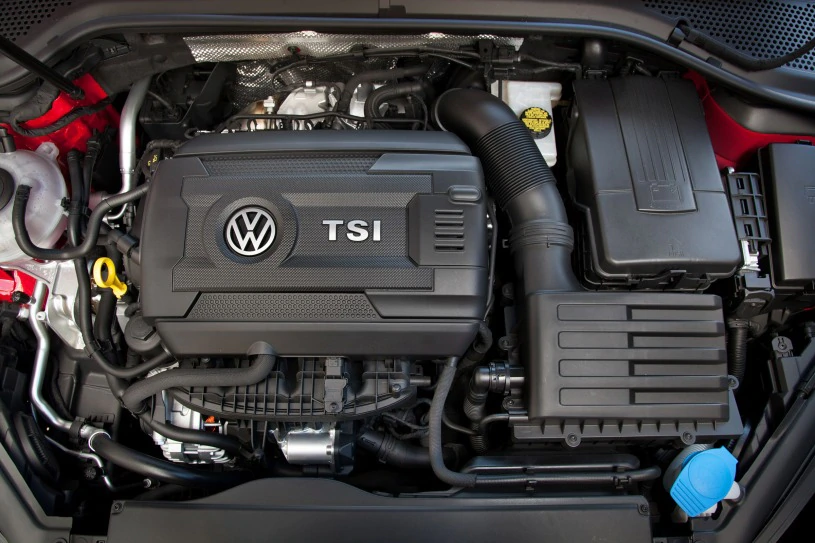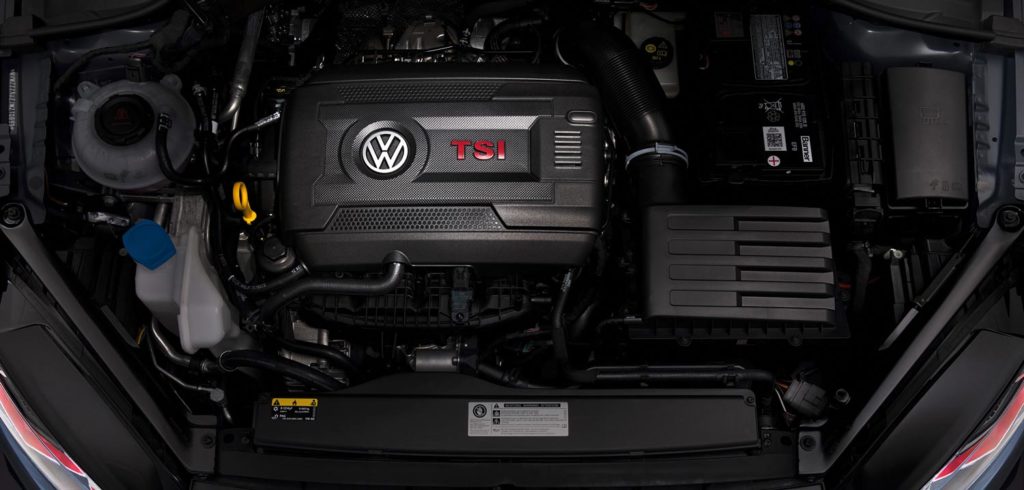A Deep Dive into the Golf 7 GTI Engine: Performance, Efficiency, and More
A Deep Dive into the Golf 7 GTI Engine: Performance, Efficiency, and More
Blog Article
Your Overview to the Golf 7 GTI Engine: Integrity and Upgrades
The Golf 7 GTI, outfitted with its 2.0-liter turbocharged inline-four engine, represents an equilibrium of efficiency and integrity that charms to lovers and day-to-day chauffeurs alike. Discovering numerous performance upgrades can significantly improve both power and efficiency.
Review of the Golf 7 GTI Engine
The heart of the Golf 7 GTI is its 2.0-liter TSI engine, a turbocharged four-cylinder that supplies a remarkable blend of power and effectiveness. This engine generates a robust 220 horse power and 258 lb-ft of torque, enabling the automobile to speed up from 0 to 60 miles per hour in just 5.6 secs, showcasing its flashy character. The turbocharged style not just boosts efficiency but additionally maximizes fuel performance, making it a practical choice for everyday driving.
Incorporating advanced modern technology, the engine features straight gas injection, which enhances burning performance and reduces discharges. Additionally, the Golf 7 GTI is geared up with either a six-speed manual or a six-speed DSG dual-clutch transmission, supplying vehicle drivers with the versatility to select their liked driving design. The automobile's front-wheel-drive layout, combined with a well-tuned suspension, makes sure dexterous handling and a responsive driving experience.
Engine Reliability Factors
Dependability is a vital aspect of any performance-oriented lorry, and the Golf 7 GTI's engine is no exemption. Numerous factors add to the overall integrity of this highly concerned powerplant, which is important for both daily driving and perky efficiency.
Firstly, the Golf 7 GTI is outfitted with a robust 2.0-liter turbocharged inline-four engine, understood for its reliable design and solid design. This engine features a built steel crankshaft and aluminum engine block, which give exceptional stamina and resilience while decreasing weight.
Second of all, normal maintenance plays an important duty in enhancing engine reliability. Sticking to the producer's suggested solution intervals, using high-grade lubricating substances, and changing necessary elements such as trigger filters and plugs can dramatically extend engine life.
Furthermore, the quality of fuel used can also influence dependability. Premium gas is suggested to guarantee optimum efficiency and lessen the threat of knocking or ignition.
Last but not least, the vehicle's electronic administration system continually monitors engine parameters, permitting for real-time adjustments to maximize efficiency and effectiveness while securing against potential issues. Collectively, these variables emphasize the Golf 7 GTI engine's track record for reliability amongst fanatics and daily vehicle drivers alike.
Typical Problems and Solutions
The Golf 7 GTI, while celebrated for its performance, is not without its challenges. Amongst one of the most frequently reported issues are engine oil usage and turbocharger failings, which can significantly affect vehicle integrity. Understanding these typical problems and their solutions is crucial for maintaining optimal engine efficiency.

Engine Oil Consumption
While lots of fanatics appreciate the performance of the Golf 7 GTI, engine oil intake can become a significant concern. Owners might observe that their lorries need more constant oil top-ups than expected, commonly connected to various variables inherent in the engine's layout and procedure.
One usual problem is the engine's straight fuel shot system, which can bring about boosted oil usage due to the burning process. Additionally, the usage of high-performance driving routines can aggravate oil burn-off, particularly under hostile throttle conditions. Drivers might additionally experience oil leaks from seals and gaskets, which can add to reduced oil degrees.
Regular oil modifications using premium synthetic oil can assist keep ideal engine performance and long life. If excessive intake continues, it might be suggested to speak with a specialist specialist to assess the engine for possible interior problems, such as used piston rings or valve seals.
Turbocharger Failings
Turbocharger failures can significantly influence the performance of the Golf 7 GTI, bring about diminished power and effectiveness. Common concerns connected with the turbocharger consist of oil leakages, wastegate failing, and too much shaft play. Oil leakages often originate from used seals or harmed gaskets, which can lead to oil contamination and subsequent engine damages. Consistently inspecting these components can assist determine and reduce such concerns early.
Another widespread problem is wastegate failing, which can result in overboost or underboost problems. If left uncontrolled, this not just influences the vehicle's performance yet can also lead to major engine damages. Updating to a much more robust wastegate can improve dependability and performance.
Excessive shaft play suggests wear in the turbocharger's bearings, which can lead to a total turbo failing. Keeping an eye on boost stress and listening for uncommon noises can help spot this problem early.
To stop turbocharger failings, normal upkeep, including oil modifications and air filter replacements, is essential. Additionally, buying top notch aftermarket parts might supply enhanced dependability and efficiency, inevitably enhancing the driving experience of the Golf 7 GTI.
Performance Upgrades to Think About
What efficiency upgrades can truly raise the driving experience of a Golf 7 GTI? To let loose the full capacity of this renowned hot hatch, a number of targeted adjustments can improve power, handling, and general driving enjoyment.
Among one of the most effective upgrades is a high-performance turbocharger. Replacing the stock unit with an aftermarket choice can substantially boost horsepower and torque, supplying a more electrifying velocity experience. Matching this upgrade with a performance intercooler assists maintain optimum temperatures, guaranteeing regular power delivery.
Following, take into consideration updating the exhaust system. A less restrictive exhaust not just improves engine performance yet additionally generates a more hostile sound that enhances the auto's stylish personality. Coupling this with a remapped ECU will certainly maximize fuel shipment and ignition timing, additional increasing performance.
Suspension upgrades, such as flexible coilovers, can improve dealing with by reducing the vehicle's center of mass and decreasing body roll. Additionally, a collection of high-performance tires will certainly improve grip, enabling sharper cornering and enhanced total stability.
Together, these upgrades can change the Golf 7 GTI into a much more dynamic and thrilling driving machine, making every journey a memorable experience. golf 7 gti engine.
Suggested Maintenance Practices
Keeping the Golf 7 GTI engine calls for attention to vital practices that make sure optimal efficiency and longevity. Routine oil modifications are vital for engine health and wellness, while prompt timing belt substitute is essential to avoid prospective failings. Executing these upkeep techniques will assist keep your automobile running smoothly and effectively.
Routine Oil Adjustments
Regular oil adjustments are essential for the ideal efficiency and long life of the Golf 7 GTI's engine. Maintaining a regular oil change schedule guarantees that the engine operates efficiently and effectively. The recommended interval for oil changes is typically every 5,000 to 10,000 kilometers, relying on driving problems and the kind of oil utilized.
Utilizing high-grade synthetic oil is essential as it supplies premium lubrication and thermal security contrasted to conventional oils. This is particularly essential for the Golf 7 GTI, which includes a turbocharged engine that generates greater operating temperature levels. Routine oil adjustments assist to remove contaminants and sludge accumulation, which can endanger engine efficiency and cause premature wear.
In addition, fresh oil improves fuel performance and lowers dangerous discharges, adding to a cleaner environment. Throughout the oil change procedure, it is likewise suggested to change the oil filter to ensure ideal purification and stop any debris from entering the engine. Complying with these techniques not only assists preserve the engine's integrity however also preserves the value of the car, making routine oil transforms an important aspect of responsible GTI ownership.
Timing Belt Replacement
The timing belt is a critical element of the Golf 7 GTI's engine, accountable for synchronizing the rotation of the crankshaft and camshaft. This synchronization is essential for optimal engine performance and performance. If the timing belt stops working, it can result in useful source catastrophic engine damages, making prompt substitute vital.

When preparing a timing belt substitute, it is a good idea to additionally replace the water pump and tensioner. These elements operate in conjunction with the timing belt and often experience similar wear, guaranteeing optimal performance and longevity. Making use of OEM parts is advised for their dependability and compatibility with the Golf 7 GTI's engine.
Specialist hop over to here setup is extremely encouraged, as inappropriate installment can lead to serious engine breakdowns. Regular upkeep of the timing belt not just shields the integrity of the engine but additionally improves the general driving experience of the Golf 7 GTI. golf 7 gti engine. Prioritizing this task helps keep lorry dependability and performance gradually
Aftermarket Components and Modifications
Many lovers transform to aftermarket alterations and components to enhance the performance and aesthetic appeals of the Golf 7 GTI. These upgrades can dramatically improve the vehicle's responsiveness, taking care of, and general driving experience. Popular modifications include high-performance air consumptions, exhaust systems, and intercoolers, which can boost horsepower and torque by optimizing air intake and exhaust circulation.
Suspension upgrades are also common, with choices ranging from reducing springtimes to completely adjustable coilover kits that enhance trip top quality and cornering capacity. Upgraded brakes, consisting of performance pads and blades, can give better quiting power, ensuring security and control throughout perky driving.
Visual modifications, such as aftermarket wheels, body packages, and customized illumination, enable owners to personalize their vehicles while preserving a flashy appearance. Engine tuning, whether through ECU remapping or standalone engine management systems, can unlock added performance potential, making the GTI also much more electrifying to drive.
While aftermarket modifications can yield considerable benefits, it's vital to pick credible brand names and take into consideration the potential impact on service warranty and dependability. Correct installation and adjusting are important to make certain the durability of the vehicle while taking pleasure in the enhancements.
Enhancing Gas Effectiveness
Improving fuel performance in the Golf 7 GTI can result in considerable expense savings and a reduced environmental impact. Accomplishing far better gas economy requires a combination of driving practices, upkeep techniques, and tactical modifications.
One effective technique is taking on a smooth driving style, staying clear of rapid velocity and heavy braking, which can significantly lower fuel intake. Keeping ideal tire pressure is also crucial; under-inflated tires can raise moving resistance, leading to lowered effectiveness. Regular maintenance, including engine tuning and air filter substitutes, guarantees that the engine operates at peak efficiency, even more enhancing fuel economy.
For those looking for upgrades, take into consideration an efficiency tune that concentrates on effectiveness instead of sheer power. Eco-mode settings, if readily available, can readjust throttle feedback and shift factors to make the most of gas financial savings. Additionally, light-weight aftermarket wheels can lower weight and improve effectiveness without compromising performance.
Finally, utilizing wind resistant enhancements, such as a front splitter or back looter, can reduce drag at higher speeds, contributing to far better gas economy. By executing these methods and alterations, Golf 7 GTI owners can enjoy boosted fuel efficiency while preserving the lorry's spirited driving qualities.
Conclusion
To conclude, the Find Out More Golf 7 GTI engine exemplifies a blend of performance and integrity, driven by a well-engineered 2.0-liter turbocharged inline-four. Recognition of common issues, such as oil usage and turbocharger failures, along with adherence to recommended upkeep practices, is important for longevity. Furthermore, different performance upgrades and aftermarket alterations can improve driving experience while maintaining dependability. Eventually, mindful attention to both maintenance and enhancement strategies makes sure the Golf 7 GTI stays an affordable selection in the vehicle market.
The Golf 7 GTI, equipped with its 2.0-liter turbocharged inline-four engine, represents an equilibrium of performance and dependability that charms to fanatics and daily drivers alike. Regular oil changes making use of high-quality artificial oil can aid maintain optimum engine performance and long life.Regular oil modifications are important for the optimal efficiency and longevity of the Golf 7 GTI's engine. Normal maintenance, including engine tuning and air filter replacements, guarantees that the engine operates at peak performance, additionally enhancing fuel economic situation.

Report this page